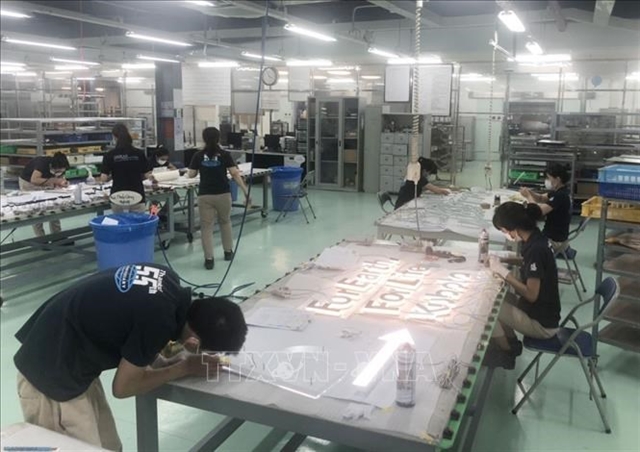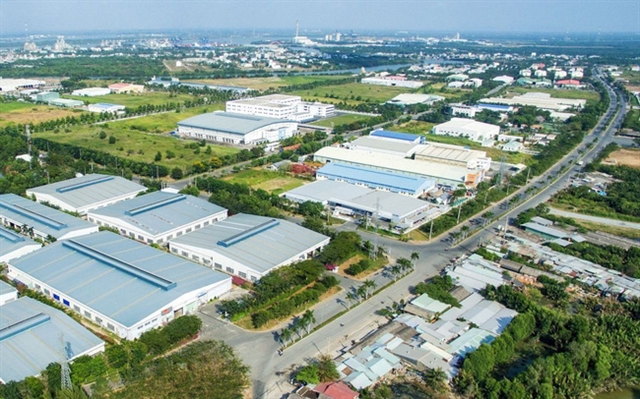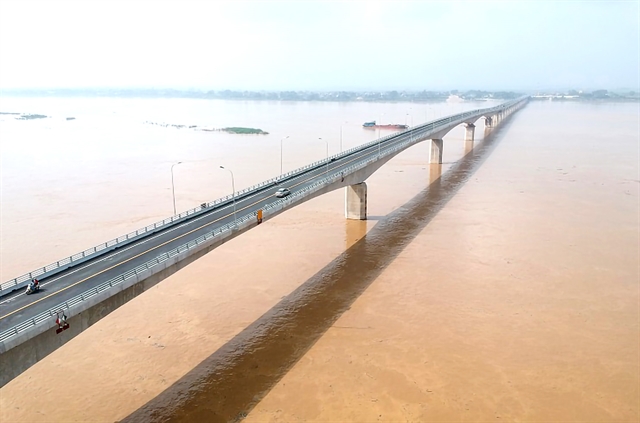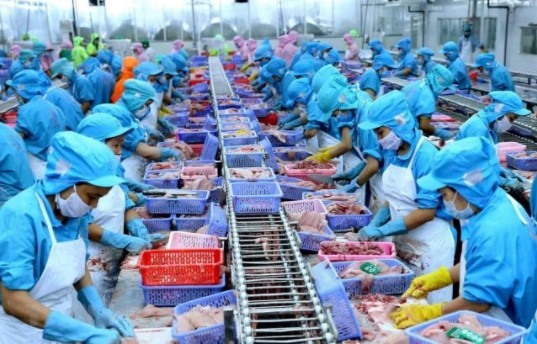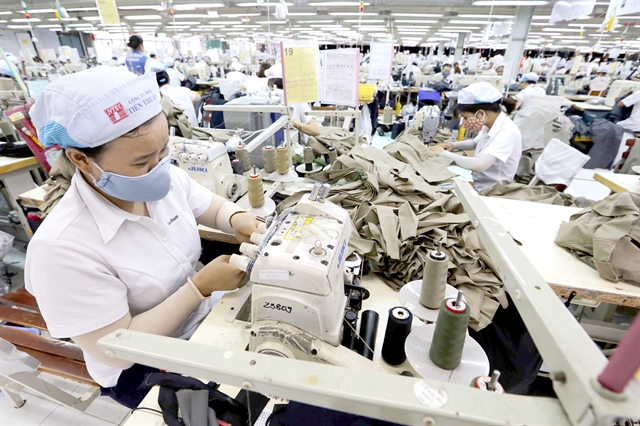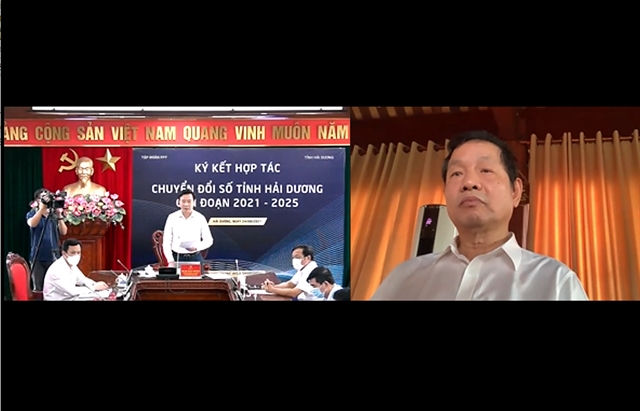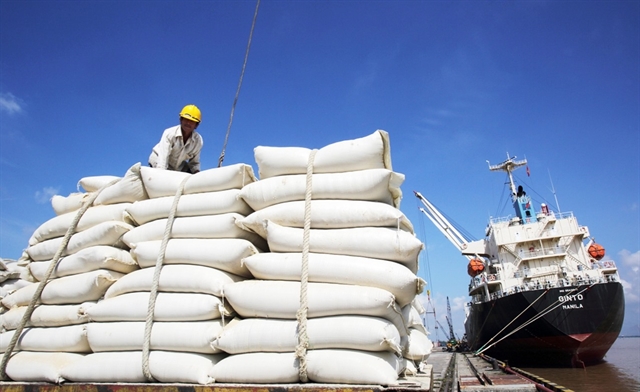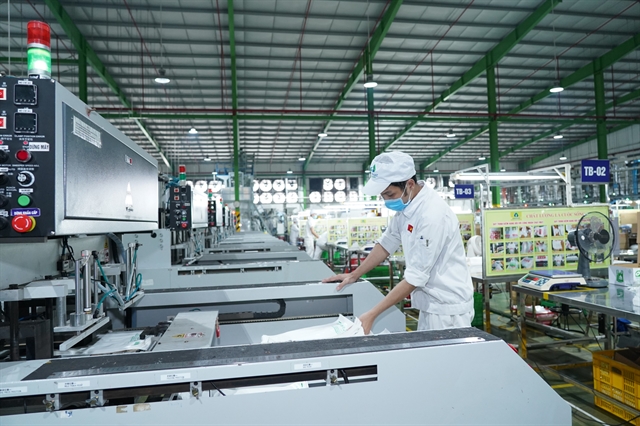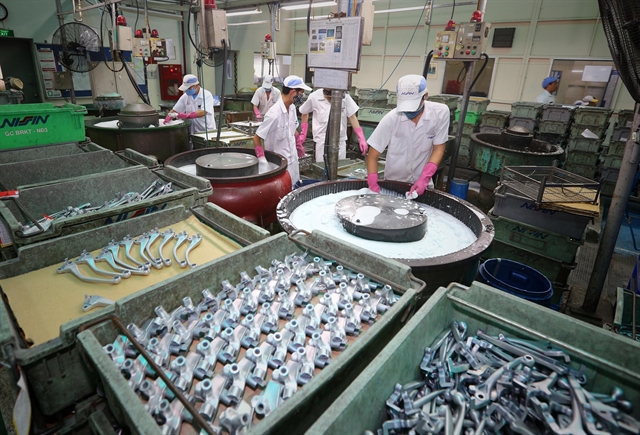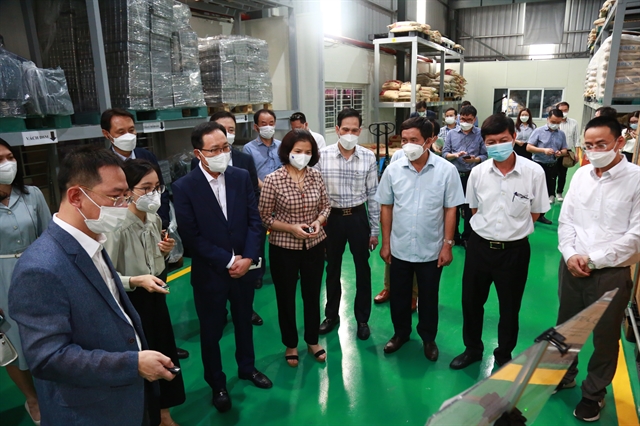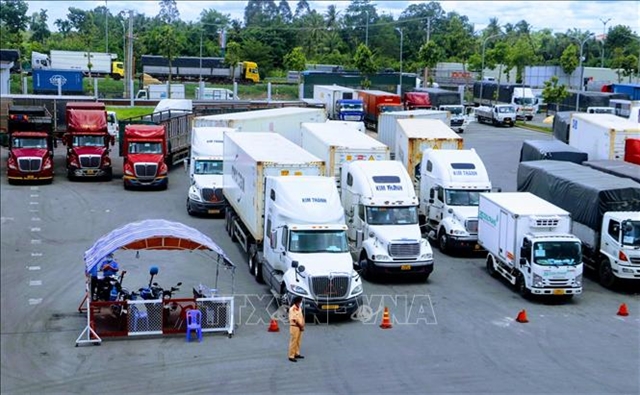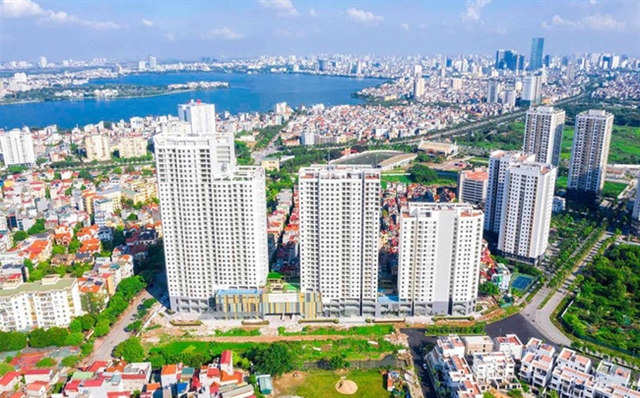
Compiled by Thiên Lý
Will the property market crash or boom in the coming months? Industry insiders are unable to agree on this, and come up with a range of replies.
The market has been up and down so far this year, making predictions difficult.
Phạm Thanh Hưng, vice chairman of CenGroup Real Estate Group, said in the first four months of the year the market grew strongly thanks to massive cash injection by investors who were afraid of low economic growth and possible devaluation of the đồng due to the COVID-19 pandemic.
But the fourth wave of COVID has hit many localities hard since May, severely affecting all sectors, including real estate, causing a sharp decrease in transactions in the sector, he said.
According to the Việt Nam Association of Real Estate Brokers, in the first half of this year the volume of real estate products offered for sale was down 17 per cent from the previous half, and the number of transactions was down more than 12 per cent.
Nguyễn Thanh Hương, general director of Đại Phúc Land Real Estate Joint Stock Company, said property developers faced a high risk.
With sharp drops in both supply and demand, the market had come to a standstill, she said. “There is nothing we can do. We must accept it.”
Nguyễn Mạnh Khởi, deputy director of the Housing and Real Estate Market Management Agency, agreed, adding the real market would continue to worsen.
Many other experts concurred, saying though the industry is not the worst affected, if the outbreak lasts much longer it would face huge challenges which are created as relevant industries are affected seriously by the pandemic.
They took the construction materials industry as a typical example. The prices of several building materials on the market sharply increased in recent months, of which steel products had their prices up 40 per cent.
The high price hikes of the construction materials have affected the production cost of housing products, thus making the selling of real estate products more difficult.
In reality, although many real estate enterprises have made great efforts in digital transformation, applying several types of protech apps to push up online sales but the successful deals have still been down significantly. The similar situation is expected to continue in the coming time.
Reasons
Social distancing and other stringent preventive measures are being adopted in many localities around the country to curb the spread of COVID, making developers and buyers very cautious about making any decisions at this time.
People’s incomes have been severely hit, and this has had a knock-on effect on property market demand. As a result, most property transactions now are done by long-term investors, and speculators have disappeared.
Experts also expect the hospitality and commercial real estate segments to meet more difficulties in recovering post-pandemic than the housing segment.
This is because the number of tourists, especially foreign, is not expected to increase quickly once the pandemic ends since the global economy has been badly dented.
Retail properties will not be as attractive as in the past also because traditional retail now has fierce competition from online models.
Serious difficulties caused by official policies, especially legal procedures, are expected to persist for project owners and investors including individuals.
They are caused by overlaps and lack of consistency between legal provisions.
Some businesses said completing procedures to start construction of a housing project takes at least two years, which often means missing investment opportunities.
This is not expected to change any time soon.
The housing market, especially the low- and mid-priced segments are expected to recover in the next few months since demand remains very high.
However, only developers with high-quality products that manage to gain customers’ trust will succeed.
Lim Hua Tiong, CEO Frasers Property Vietnam, told Đầu Tư (Vietnam Investment Review) newspaper all segments, especially housing and industrial products, would recover soon after the pandemic ends.
Angus Liew Bing Fooi, general director of Gamuda Land, said with its population of nearly 100 million, Việt Nam always had high demand for housing, while limited supply had persisted for years.
The short supply had been aggravated by the pandemic by delaying approvals for new projects, he said.
He too expects the market to recover strongly after the pandemic due to continuing demand for housing and developers’ readiness to launch projects.
Indeed, many developers like Phú Đông Group, Vạn Phúc Real Estate Corporation, Đại Phúc Land, and Gotec Land have plans to sell thousands of units, mainly apartments, after COVID ends.
Analysts said to foster the market, authorities needed to quickly digitise administrative procedures, which requires the use of technology and tweaking the legal framework.
They also want the Government to consider incentives such as reduction in corporate income tax and registration fees to support real estate businesses.
They said banks needed to restructure and reschedule mortgages for borrowers who had been affected by the pandemic.
Deputy Minister of Construction Nguyễn Văn Sinh said it was necessary to continue strengthening the legal framework for real estate investment and sales by amending and supplementing the Land Law and Law on Real Estate Business so that the difficulties currently faced by the real estate market would be removed and demand would be met.
The construction ministry said real estate companies, especially developers and sellers, needed to scrupulously comply with the laws while doing business.
The market would continue to attract domestic and foreign investors, especially Hà Nội, HCM City and localities in the southern key economic region, it added. VNS
